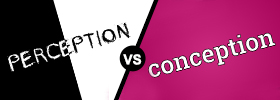Difference between Language Acquisition and Language Learning
Key Difference: Language Acquisition is the manner of learning a language by immersion. It provides the student with the practical knowledge of the language. Whereas, language learning focuses on providing theoretical knowledge of a language.
 Language is the primary form of communication that humans use. However, language is not something that is taught to children. A child will pick up his/her native language just by being around other people, mainly their families. This is called language acquisition. The child acquires the language without any conscious thought or study.
Language is the primary form of communication that humans use. However, language is not something that is taught to children. A child will pick up his/her native language just by being around other people, mainly their families. This is called language acquisition. The child acquires the language without any conscious thought or study.
In fact, by the time a child is five years old, he/she can express ideas clearly and almost perfectly from the point of view of language and grammar. This is despite any formal studying of the language.
Language learning, on the other hand, is a structured learning of a language. This is the process that most people follow when trying to learn another language. Here the student is made to study lists of vocabulary, as well as sentence structure and grammar. This is the most common method used in schools and language learning centers.
Language learning is generally considered to be a slower process than language acquisition. There are people who study a language for years without mastering it. The main difference between Language Acquisition and Language Learning is that Language Acquisition is the manner of learning a language by immersion. It provides the student with the practical knowledge of the language, for example, the student might not known the grammar rule but is still able to immaculately converse with a native.

Whereas, language learning focuses on providing theoretical knowledge of a language. In this case, the student might know all the proper grammar rules and the correct ways of sentence structuring, but might still lack the confidence to have a conversation with a native.
Hence, as stated by Stephen Krashen, students who are taught in a formal, structured way will “learn” the language but never fully acquire it.
Comparison between Language Acquisition and Language Learning:
|
|
Language Acquisition |
Language Learning |
|
Meaning |
Picking up a language |
Studying a language |
|
Focus |
Practical Knowledge |
Theoretical Knowlegde |
|
Method |
Unconscious, implicit |
Conscious, explicit |
|
Situations |
Informal situations |
Formal situations |
|
Grammar |
Does not use grammatical rules |
Uses grammatical rules |
|
Dependency |
Depends on attitude |
Depends on aptitude |
|
Order of learning |
Stable order of learning |
Simple to complex order of learning |
Image Courtesy: uni-goettingen.de, howto.wired.com









Comments
Petra
Tue, 11/28/2017 - 23:45
Add new comment